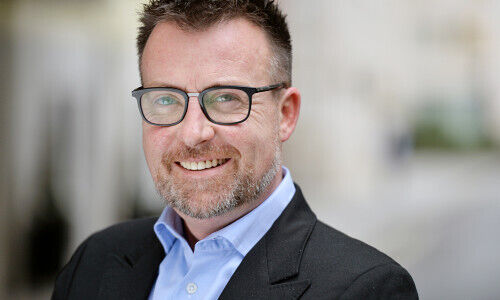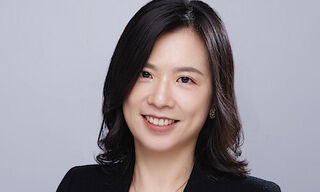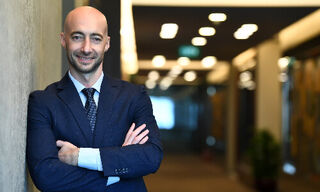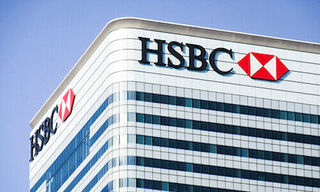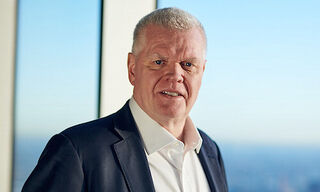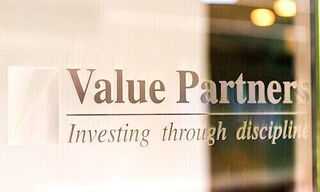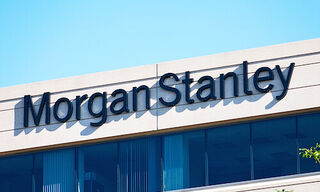John Ions is keeping a cool head in the takeover play for GAM. The Liontrust head hopes to convince those investors resisting his takeover bid. He assures finews.com he is not aiming to downsize the Swiss asset manager but is seeking growth.
John Ions, opposition to your takeover bid for GAM has been building. A group of investors including French billionaire Xavier Niel holds 8.6 percent of the fund firm and has lodged a formal objection with the Swiss Takeover Board against the terms of the deal. Was Liontrust surprised by the action?
No, those investors already made their demands known beforehand. Our offer is supported by the GAM Board of Directors, and we already have around 20 percent of the GAM shareholder votes behind us. We believe our offer reflects both the enormous potential of the acquisition, but also the work and investment it will take to realize that potential.
Investors Bruellan and NewGAMe, Rock Investment, and Phoenix Insurance call Liontrust's offer unfair. Those are strong words. How do you respond?
Look, everyone is entitled to their own opinion. We hope that the group will still change its attitude toward the offer when they better understand our plans for GAM.
«The company would run out of money over the next year»
We don't believe our offer is unfair - if it were, we would have heard of alternative bids after all. So far, our bid is the only one that GAM has officially received.
Have you spoken to these players?
No, not yet.
Liontrust intends to fund the takeover with its shares. The price, with an equivalent value of 107 million Swiss francs, is significantly lower than GAM's stock market valuation at the time of the offer. Do you now have to make improvements?
If we look at GAM's share price a month ago, we are actually paying a premium with our offer. Since then, the share price has gone up, and we have to accept that. If you consider GAM's current financial situation, with a substantial IFRS loss of 290 million Swiss francs in 2022 and severely reduced liquidity, our offer seems very fair. We say with the combination of the two companies, our chances of being successful increase enormously. It's about more than just the price.
Now the Takeover Commission has to take another look at the transaction. You mentioned GAM's poor financial condition. Is the company running out of time?
Considering the current trend, the company would run out of money during the next year. GAM needs fresh capital to unlock the company's potential.
How has it come to this, from your point of view?
The business model had become too complicated over the years. And as the operational problems increased, the focus was lost on what the company is really good at. As a result, the past five years have been difficult for GAM.
What is GAM good at?
What really impressed me in my conversations with employees in London and in Zurich is the great enthusiasm for the profession and the professionalism that remains.
«The moment you start cutting costs, you automatically make a company smaller»
The performance of GAM's funds has also been fantastic. But in the highly regulated institutional business, if there is the slightest doubt about an asset manager's future viability, it will not be allocated any assets. This is what GAM salespeople have had to experience time and again in tenders. The combination with Liontrust will now bring back the much-needed stability.
Liontrust is known to be cost-sensitive. How many jobs at GAM will fall victim to the acquisition?
The moment you start cutting costs, you automatically make a company smaller. Together with GAM, we have the opportunity to move the business forward. As a business grows, it will need more roles for qualified personnel.
So there will be no downsizing?
Because we are mainly present in the UK and GAM is international, there is hardly any overlap in fund management and distribution. Of course, there will be synergies. The focus here is more on London than on Switzerland. GAM is also looking for a buyer for its Fund Management Services business. We are confident the buyer will be able to retain most of the existing employees. Liontrust has successfully integrated several companies over the past six years. In that respect, our management team knows what it's doing.
According to one analyst, Liontrust's management is too optimistic about the expected costs of restructuring. Is he right?
This observer may not know the full facts. Normally in a merger like this, for example, there is the problem of long-term leases. GAM has offices in London, and so do we. The rents have to continue to be paid or be paid off at a high price. But we are lucky. Liontrust's lease is about to expire, and we can move into GAM's offices as part of the integration. There is even a whole floor free there.
«Starry-eyedness happens when the management allows it»
Moreover, we are a listed company in the UK, so our plan for the takeover will be scrutinized by a major auditing firm and by a so-called sponsor from the supervisory authority. Accounting errors would quickly come to light.
After all, it's not only key figures that play a role in a merger, but above all the culture. In the past, GAM paid homage to the concept of the star fund manager, which then came to grief. How does that fit with your company, which is strongly focused on institutional needs?
The question of cultural fit is very important to us. What I find with both firms is that they have strong and clear investment processes and invest with great discipline and conviction. In this investment approach, GAM and Liontrust are similar. The star manager, in my opinion, is one who feels they are more successful and influential than the rest of the market. But success comes from the performance of the team, and that's how we communicate it. Starry-eyedness happens when the management allows it.
You said it yourself: GAM has had a difficult few years. In the last twelve months alone, the share price has almost halved, losses have climbed, jobs have been cut and clients have withdrawn their money. Where is the hidden value in this crisis-ridden company that investors and clients have been unable to recognize?
We combine Liontrust's strong position in the UK with GAM's international distribution network and investment capabilities. The firm has built an excellent reputation over the years as an active asset manager, in Swiss equities as well as in multi-asset for Swiss pension funds. GAM has one of the strongest brands in Switzerland in this area - even though the company has struggled in recent years. This fantastic potential now needs to be tapped. Liontrust holds the key.
John Ions took over as Chief Executive of Liontrust Asset Management in 2010. Before that, he had run the since-defunct fund management firm Tactica Fund Management. Other career stops included subsidiaries of the major French bank Société Générale and the British-Scottish fund giant Aberdeen Asset Management (now Abrdn), where he was head of sales. Liontrust was founded in 1995 and has been listed on the London Stock Exchange (LSE) since 1999. As of mid-April, the fund house, which has offices in London, Edinburgh, Scotland, and Luxembourg, managed assets of 31.8 billion pounds (35.5 billion Swiss francs) for its clients. Last week, the British firm announced its intention to take over its struggling Swiss competitor GAM, which has fund assets of 23.3 billion Swiss francs.

